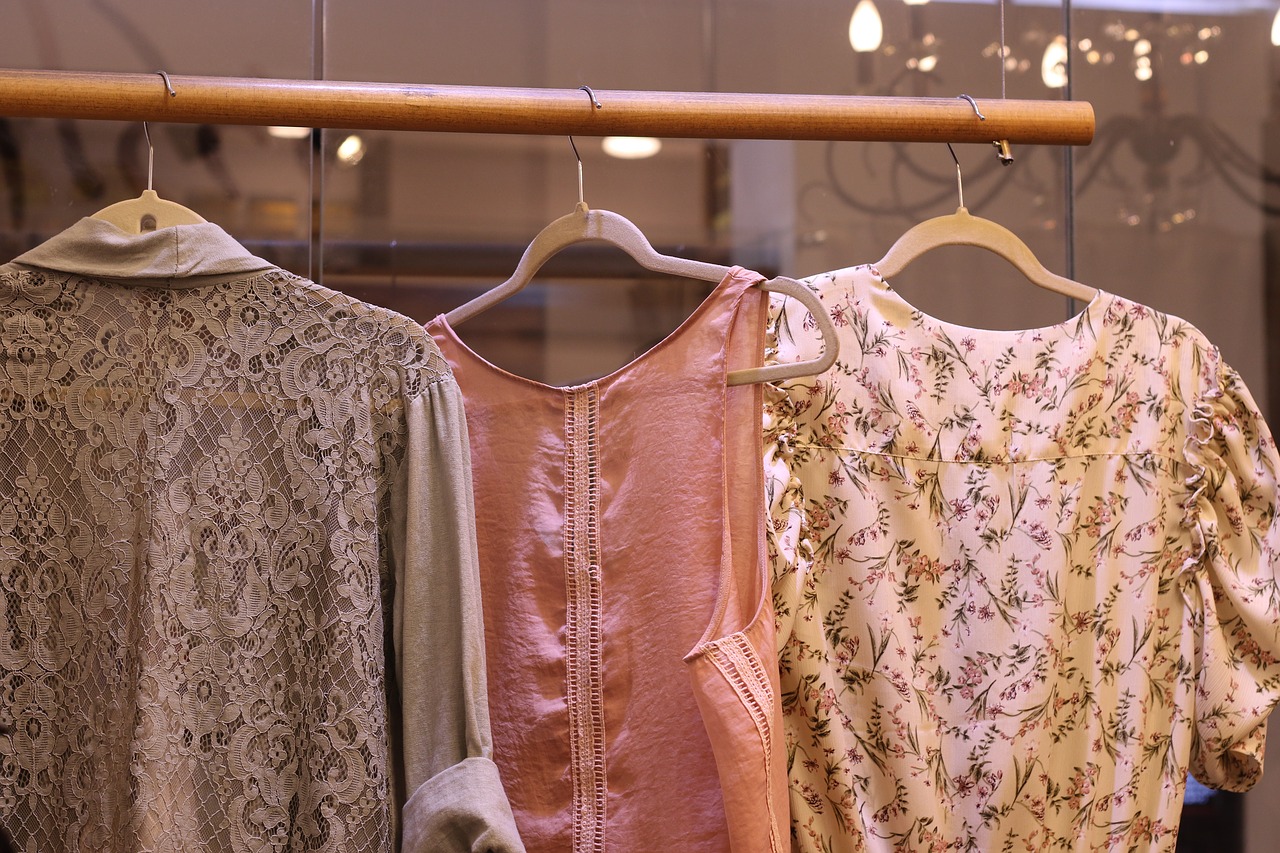Whether or not you’re a retailer trying to broaden your product procurement channels or a producer hoping to amass a brand new gross sales avenue, you’ll come throughout the time period “wholesale” in some unspecified time in the future.
On this publish, we’ll dive into the definition of wholesale, its differing types, and key phrases.
There’s loads of juicy data so let’s get straight to it.
What Does Wholesale Imply?
“Wholesale” Definition
To know wholesale, we have to take into account what it means from completely different factors of view.
Historically, for retail shops, shopping for wholesale means buying items for your enterprise in massive portions at decrease costs. You’ll then inventory these things in your retailer and resell them to the top buyer (particular person shoppers).
From the vantage level of a producer, promoting wholesale would put you on the different finish of the method, the place you’d provide your merchandise in bulk to a intermediary (often called a distributor, however extra on this later) or on to retail shops.
Bulk Shopping for within the Wholesale Definition
It’s necessary to notice that regardless that practically all wholesale definitions speak about bulk orders, this isn’t a rule that’s carved in stone though it is vitally typically the case. There are wholesalers (often producers themselves) who’re pleased to promote their gadgets in smaller portions, particularly once they’re coping with a retailer for the primary time.
As an illustration, some suppliers listed on Handshake haven’t any minimal order necessities.
What’s a Wholesaler?
There are two most important varieties of wholesalers that retail companies should buy their merchandise in bulk from – distributors and producers.
Each of those are thought of to be suppliers within the realm of wholesale (extra on this in a bit).
Distributors
Distributors purchase merchandise in massive volumes from producers after which promote them off (additionally in bulk) to retailers. They play no position within the manufacturing technique of the merchandise. Oftentimes, in addition they personal their very own storage amenities to carry these merchandise.
Wholesale distributors act as an middleman between the producer and the retail enterprise.
Producers
Wholesalers will also be producers who, as its identify suggests, create or produce the products themselves.
As producers promoting wholesale, they’re each the provider and the maker of their merchandise and so they can promote to distributors or deal immediately with the retail store with no intermediary concerned.
Suppliers
Within the context of wholesale, each distributors and producers are suppliers, that are basically companies retailers supply their merchandise from.
Past wholesale, nevertheless, a producer could not essentially be a provider.
Suppliers sometimes interact in B2B (business-to-business) ecommerce – that’s, they promote to different companies (like a distributor or a retailer). In the meantime, some producers additionally promote B2C (business-to-consumer). In such circumstances, they’d not be thought of to be suppliers.
Regardless of what kind of provider a wholesaler is (a producer or distributor), their prospects are companies and by no means the person shopper.
In different phrases, when you’re a retailer shopping for wholesale merchandise, you’d get your items to inventory your retailer from both a distributor or the producer himself.
What Does “Wholesale Worth” Imply?
“Wholesale worth” refers back to the price at which retailers would safe their items when shopping for in bulk from a wholesaler.
As talked about above, as a result of wholesalers will also be distributors, “wholesale worth” additionally refers back to the worth distributors pay producers to acquire their merchandise in massive volumes.
Wholesale costs are at all times decrease than the retail costs a retailer would set for its shopper. That’s as a result of companies markup the wholesale worth so as to make a revenue from the end-sale transaction.
Producers or distributors are in a position to set their wholesale costs at a decreased charge due to quantity shopping for. This lowers the time and prices concerned within the dealing with/manufacturing of every unit, which, in flip, boosts income.
Wholesale Worth vs Retail Worth Instance
A wholesale candle provider or producer affords its candles in massive volumes at a wholesale worth of $19 per unit to a enterprise promoting residence decor merchandise.
After buying from the wholesaler, this retailer then re-sells these candles at $26 per unit to its prospects, pocketing $7 in revenue for each candle offered.
Setting a Retail Worth
One of many best strategies to resolve on a retail worth is by way of keystone pricing. It’s a easy technique that principally includes doubling the wholesale worth.
Normally, it’s a secure method to make sure all enterprise prices are coated and permit for a wholesome revenue margin on the similar time.
In essence, that is how keystone pricing would work:
That stated, as simple as this technique is, it might not be optimum for every type of enterprise.
As an illustration, it’s beneficial for brand new candle companies to listing their merchandise at a 25 to 50 % markup, whereas these for clothes retailers can vary from 100 to 300 %.
That’s as a result of the quantity of mark-up a retailer wants so as to add to earn a revenue is determined by a bunch of things that may fluctuate tremendously in response to the product, market, and wholesaler. These embody:
- Wholesale price
- Provider-to-retailer delivery prices
- Advertising and marketing prices
- Product kind
- Market
- Retailer-to-consumer delivery prices for on-line companies
Kinds of Wholesale
Wholesalers function in another way relying on their setup. These are the three hottest varieties of wholesale classes.
1. Service provider Wholesalers
Service provider wholesaling is, by and much, what most individuals consider when coming throughout the time period “wholesale.”
It’s the most well-liked methodology of wholesaling, which includes a distributor buying items in quantity from a provider/producer, storing them in their very own amenities, after which re-selling them in smaller bulk portions to retailers.
Since they’re distributors, service provider wholesalers don’t produce the products themselves. In addition they are likely to specialise in sure varieties of merchandise, which makes them very educated in regards to the merchandise they commerce.
2. Brokers/Brokers
Like service provider wholesalers, brokers or brokers are additionally unbiased intermediaries. They, nevertheless, don’t buy the products produced by producers.
Because of this, not like service provider wholesalers, brokers and brokers by no means legally personal any of the wholesale merchandise they transact.
As a substitute, their position is to arrange a deal between wholesalers and the companies taken with buying from them (be it a distributor or a retailer) whereas incomes a fee within the course of – very like an actual property agent.
Brokers and brokers are principally utilized by producers/suppliers who don’t have the monetary energy or data to deal with their very own gross sales.
3. Producers’ Gross sales And Distribution Groups
Any such wholesale promoting is much like wholesale brokers and brokers in that they’re accountable for securing consumers for the producer and have a vested curiosity in doing so.
Nonetheless, these gross sales and distribution groups should not separate entities. They’re owned by the producer themselves and are liable for distributing the merchandise on a wholesale stage (to distributors or retail shops).
The places of work of a producer’s gross sales and distribution groups are often stored bodily aside from the manufacturing plant.
Wholesale Phrases You Want To Know
Should you’ve beforehand executed some analysis on wholesale, you will have come throughout sure phrases and acronyms that look international to you. Don’t let these scare you off.
Though the world of wholesale could also be pretty new to you, these are phrases which are straightforward to grasp, as soon as we break them down.
Plus, when you’re severe about wholesale – no matter whether or not you’re trying to promote or buy – you’ll have to get your self acquainted with them.
On this part, we’ll dive into eleven of the most typical and important wholesale phrases you want to know.
1. MOQ
MOQ in wholesale stands for Minimal Order Amount.
Though it’s not at all times the case, most wholesalers require a minimal variety of unit orders from a purchaser to have the ability to provide their costs at wholesale (decrease) charges.
2. MOV
MOV is Minimal Order Worth and its idea is much like MOQ.
The distinction between MOV and MOQ is that the latter offers with unit portions (e.g. an order for no less than 500 models of candles) whereas the previous refers to order quantity in {dollars} (e.g. an order of no less than $2,000 value of candles).
Each MOVs and MOQs can fluctuate tremendously relying on the producer/distributor you’re employed with, the product, and the sector you’re in.
Tip: As a retailer, when you’re utilizing on-line wholesale marketplaces to supply for suppliers, be sure that to test whether or not their directories present particulars on minimal orders so that you can type, filter, and make an knowledgeable choice.
3. MSRP
MSRP refers back to the Producer’s Steered Retail Worth.
That is the worth a wholesaler recommends its merchandise to be offered at by the retail enterprise to the top shopper (i.e. the worth listed within the retail retailer), which is increased than the wholesale worth because it takes into consideration mark-ups by retailers.
Word that that is solely a suggestion and it’s as much as retailers to resolve whether or not or not they need to abide by it.
As an illustration, they’re free to listing their costs increased than the MSRP for merchandise in excessive demand to spice up income, or set them decrease throughout sale seasons.
The MSRP can also be generally known as the RRP (Advisable Retail Worth).
4. White/Personal Label
White or non-public labeling is when a retailer agrees with a producer to promote its product(s) beneath the retailer’s model identify and brand.
This could both be for gadgets that the producer is already producing or a brand new product that the retailer commissions the producer to develop. In each circumstances, the retailer would nearly at all times have unique rights to the product(s).
5. Wholesale Solely
This time period could also be complicated. We’re deep into the definitions of wholesale and its associated phrases, so what does “wholesale solely” imply?
In easy phrases, it’s a time period that suppliers would use once they’re solely promoting B2B and to not the overall shopper.
6. Again Order
Again orders seek advice from purchases from retailers which were positioned however but to be shipped.
That is often because of the lack of stock from the wholesaler/producer, which will also be as a result of the order was positioned earlier than the beginning of the manufacturing course of.
7. Buybacks
Buybacks happen when a wholesaler re-purchases unsold merchandise that have been initially purchased by the retailer.
Situations for buyback are often set upfront and agreed upon by each events. This contains time restrict, re-purchase worth, circumstance, and extra.
8. Buy Order
A purchase order order is a doc containing the main points of the gadgets being bought.
It often contains:
- Merchandise amount
- Merchandise description
- Worth per unit
- Whole worth
- Date
- Cost phrases
A purchase order order is used to generate an bill.
9. Internet Cost Phrases
This refers to a kind of cost plan agreed upon by the retailer and the wholesaler.
It permits the retailer to make cost solely after having obtained the products and time to promote them.
The commonest cost phrases are 30, 60, and 90 days, though it will also be as brief as seven days and so long as 180 days.
10. Consignment
A consignment is a particular association between the retailer and wholesaler wherein the retailer solely pays for the merchandise after they’re offered.
Beneath this association, retailers don’t buy the gadgets from the wholesaler. As a substitute, they merely place the producer’s merchandise of their retailer and take a small minimize from any gross sales that will occur.
Any unsold merchandise are returned to the wholesaler.
11. Lead Time
Lead time is the size of time between the second a retailer locations an order with a wholesaler and the products’ arrival.
That is often known as turn-around time.
What Does Wholesale Imply: Abstract
In brief, wholesale will be summarized within the following factors:
- Wholesale nearly at all times includes bulk purchases
- Wholesale costs are decrease than retail costs
- As a retailer, shopping for wholesale means securing items both from a distributor or immediately from the producer
- Likewise, as a producer, you possibly can promote wholesale to distributors, who’d then resell your items in bulk, or to retail companies
We hope this publish has been helpful in shedding some gentle on the ins and outs of wholesale shopping for and promoting.
Should you’re taken with studying extra about wholesale, we suggest you take a look at our posts on Wholesale vs Retail: Every part You Must Know and Dropshipping or Wholesale: Which Sourcing Methodology is Higher.
Have any questions on wholesale? Depart them under and we’ll get to them!

















